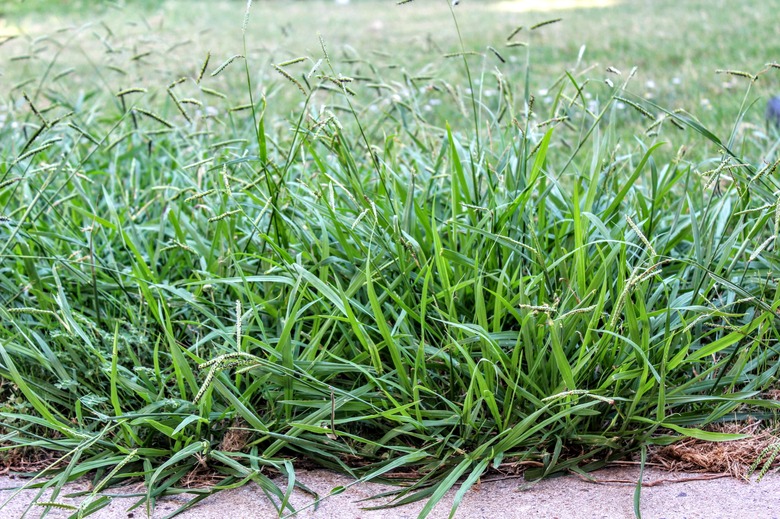How To Kill Water Grass Weeds
We may receive a commission on purchases made from links.
Weeds can bring trouble to any yard or garden due to their tendency to become invasive and steal precious soil nutrients and minerals from your preferred plants. Water grass weeds are common weeds that people often seek to remove from their lawns. Killing water grass weeds can be done with a bit of time and patience, and finding the right weed killer is an essential part of preserving the rest of your yard.
What Are Water Grass Weeds?
What Are Water Grass Weeds?
Water grass is generally a blanket term for a number of grasses that are considered to be weeds by many people. Some of the most common grasses regarded as water grass include crabgrass (Digitaria spp.) and yellow nutsedge (Cyperus esculentus, USDA zones 8-10).
Crabgrass stays low to the ground and forms in small clumps. You've probably seen crabgrass peeking out of cracks or spaces in sidewalks or along the side of the road. The blades are thick, and plants thrive in warm summer weather, but their seeds begin to germinate in the early spring. Crabgrass is an annual plant that will die off every year when the temperature drops below freezing, but it does produce thousands of seeds before this time, allowing it to return each year.
Yellow nutsedge is technically not a grass but a sedge, and it is identified by "V"-shaped leaves that surround a yellow flower, which eventually becomes a seed head. The rhizomes of this plant can grow over a foot deep into the ground, so management is needed to control the species.
How to Kill Weeds
How to Kill Weeds
First, you'll need to learn exactly which weeds are in your yard to find the right herbicide. Many herbicides are designed to treat a variety of weeds but keep in mind the additional aspects of the formula to fit your household's needs, like whether it's safe for pets and kids and if it may potentially damage the surrounding grass. For a natural DIY solution, add vinegar to a spray bottle and apply it directly to the weeds, taking care to avoid nearby grass and plants.
It's important to consider that household vinegar is too low in concentration to treat most weeds, so look for a vinegar-based weed killer solution, like Green Gobbler. Store-bought weed killers, like Syngenta herbicide and Compare-N-Save weed and grass killer, are also excellent options that won't damage your existing grass or compromise the health of your lawn's soil.
If you've tried other methods of weed control, like vinegar or pulling the plants by the root, but still cannot seem to rid your lawn of them, it is recommended that you contact a local lawn care company to assess the situation. Several effective herbicides, like Basagran and Certainty, are excellent at removing and preventing weeds but aren't available for purchase by the general public.
Things to Keep in Mind
Things to Keep in Mind
The best way to prevent the spread of weeds is to maintain your lawn through regular cutting, which will encourage thick, abundant regrowth of your healthy grasses and will usually prevent grass weeds from going to seed and germinating. However, you don't want to cut your lawn too often or too short, and some water grass weeds, like crabgrass, thrive in sparsely populated settings and may outcompete your other grass. Nutsedge grows very well in wet environments, so if you're overwatering your lawn or if your lawn's soil isn't well-draining, you may be promoting its growth.
References
- Pro Turf Lawn & Tree Service: Yellow Nutsedge Identification in Kansas City, St. Louis and Omaha, Nebraska
- Crabgrass Lawn: 8 Best Weed Killers for Lawns [Comparison + Reviews 2021]
- Iowa State University Extension and Outreach: How Do I Control Water Grass in My Lawn?
- NC State Extension: Digitaria sanguinalis
